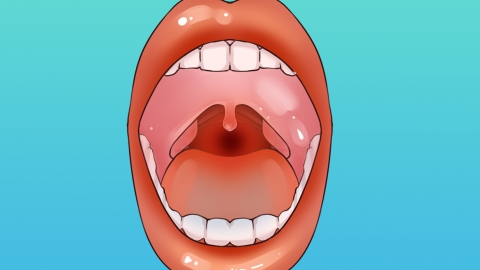What should I do if I have a sore throat and hoarseness?
Generally, the throat refers to the pharynx and larynx. Hoarseness or loss of voice may be related to environmental factors, vocal cord fatigue, acute pharyngitis, vocal cord paralysis, vocal polyps, and other factors. Treatment options, to be used under a physician's guidance, include general therapy, medication, and surgical treatment. A detailed explanation is as follows:

1. Environmental Factors
Dry, cold, or heavily polluted environments can irritate the throat, causing vocal cord congestion and edema, which may lead to hoarseness. It is recommended to avoid prolonged exposure to adverse environments, maintain indoor air humidity, and wear a mask outdoors to reduce irritation to the throat.
2. Vocal Cord Fatigue
The vocal cords are the main organs responsible for voice production. Prolonged or excessive use can lead to vocal cord fatigue and subsequent hoarseness. For example, extended talking, loud shouting, or frequent throat clearing can damage the vocal cords. To prevent vocal fatigue, it is recommended to manage speaking time and volume appropriately, avoid speaking continuously for long periods, and maintain adequate hydration to lubricate the vocal cords.
3. Acute Pharyngitis
Acute pharyngitis may be caused by bacterial or viral infections. Inflammation can lead to congestion and edema of the pharyngeal mucosa, affecting the vocal cords and causing hoarseness. Symptoms often include sore throat, difficulty swallowing, and fever. Medications such as Ribavirin Granules, Lanqin Oral Liquid, and Amoxicillin Capsules may be used under medical guidance for treatment.
4. Vocal Cord Paralysis
Vocal cord paralysis can be caused by various factors, such as neck surgery, trauma, or viral infection. When the vocal cords are paralyzed due to damage to the recurrent laryngeal nerve, vocal cord movement may be impaired, resulting in hoarseness. It is often accompanied by symptoms such as difficulty breathing and swallowing. Treatment options under a physician's guidance may include medications such as Methylprednisolone Tablets, Mecobalamin Tablets, and Vitamin B12 Tablets.
5. Vocal Cord Polyps
Long-term irritation or injury to the vocal cords may lead to the formation of polyps on the vocal cord surface, which can affect voice production and cause hoarseness. Symptoms may also include coughing and a sensation of a foreign body in the throat. Under medical guidance, medications such as Jinsuang Sanjie Pills, Cefixime Capsules, and Huangshi Xiangsheng Pills may be used for treatment. If the polyps are large and significantly affect daily life, surgical removal via endoscopic vocal polypectomy may be considered.
In daily life, one should avoid speaking continuously for long periods or shouting loudly, and manage vocal use time and volume reasonably to protect the vocal cords. Additionally, drinking plenty of water to keep the throat moist can help reduce friction and vocal cord damage.




